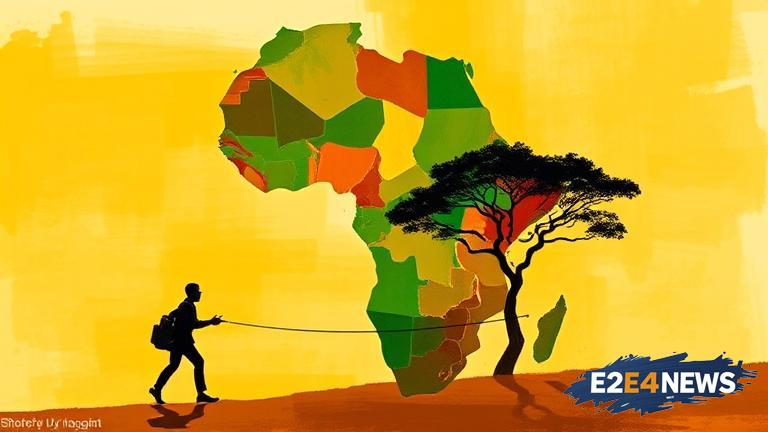The African continent has long been plagued by disputes and conflicts, hindering economic growth and development. However, in recent years, a new wave of dispute resolution mechanisms has emerged, revolutionizing the way African countries approach conflict. This shift has been driven by the increasing recognition of the importance of stability and predictability in attracting foreign investment and promoting economic development. As a result, African countries are now turning to alternative dispute resolution methods, such as mediation and arbitration, to resolve conflicts in a more efficient and cost-effective manner. This approach has been shown to reduce the time and cost associated with traditional litigation, while also promoting a more collaborative and constructive approach to conflict resolution. One of the key drivers of this trend has been the establishment of the African Continental Free Trade Area (AfCFTA), which aims to create a single, unified market for the entire continent. The AfCFTA has created new opportunities for trade and investment, but it also requires a robust dispute resolution framework to ensure that conflicts are resolved quickly and efficiently. In response, the African Union has established a number of dispute resolution mechanisms, including the African Court of Justice and Human Rights, which provides a platform for resolving disputes related to trade, investment, and human rights. Additionally, many African countries have established their own national dispute resolution centers, which provide a range of services, including mediation, arbitration, and conciliation. These centers have been shown to be highly effective in resolving disputes, with many cases being resolved through mediation or arbitration, rather than traditional litigation. The use of technology has also played a key role in the development of dispute resolution in Africa, with many countries leveraging online platforms and digital tools to facilitate the resolution of disputes. This has helped to increase access to justice, particularly in rural and remote areas, where traditional court systems may be limited. Furthermore, the use of technology has also helped to reduce the cost and time associated with dispute resolution, making it more accessible and affordable for individuals and businesses. The impact of dispute resolution on economic growth in Africa has been significant, with many countries experiencing increased foreign investment and trade as a result of their improved dispute resolution frameworks. For example, countries such as Rwanda and Ghana have established themselves as leaders in dispute resolution, with a strong focus on mediation and arbitration. These countries have seen significant increases in foreign investment, with many international companies establishing operations in these countries due to their stable and predictable business environments. In addition, the use of dispute resolution has also helped to promote economic development in Africa, by providing a framework for resolving conflicts related to trade and investment. This has helped to increase trade and investment between African countries, promoting regional integration and economic growth. Overall, the development of dispute resolution in Africa has been a major success story, with many countries experiencing significant economic benefits as a result of their improved dispute resolution frameworks. As the continent continues to grow and develop, it is likely that dispute resolution will play an increasingly important role in promoting economic growth and development. With the continued support of international organizations and the African Union, it is likely that dispute resolution will remain a key priority for African countries, as they seek to promote stability, predictability, and economic growth. The future of dispute resolution in Africa looks bright, with many opportunities for growth and development. As the continent continues to evolve and develop, it is likely that dispute resolution will play an increasingly important role in promoting economic growth and development. In conclusion, the development of dispute resolution in Africa has been a major success story, with many countries experiencing significant economic benefits as a result of their improved dispute resolution frameworks. The use of alternative dispute resolution methods, such as mediation and arbitration, has been shown to be highly effective in resolving disputes, while also promoting a more collaborative and constructive approach to conflict resolution. As the continent continues to grow and develop, it is likely that dispute resolution will play an increasingly important role in promoting economic growth and development.
